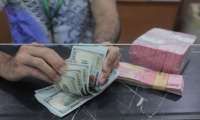JAKARTA. Some of government regulations, which will be taking into effect in the beginning of 2017, are feared to reduce people’s purchasing power. Those regulations include: the removal of electricity subsidy for the segment of 900 volt ampere (VA) and the average increase in cigarette excise by 10.54%.
Economist at Bank Permata Josua Pardede said, the increase in electricity tariff may affect to people’s purchasing power. However, the effects to the overall public consumption may still be covered with the low inflation rate. Therefore, “Public’s purchasing power will remain solid,” he said, Monday (2/1).
Let alone, the concurrent local elections in February 2017 will boost the consumptions. Based on the calculations, Josua predicts that the economy will grow at the range of 5%-5.1% during the quarter I of 2017. Economist at Institute for Development of Economics and Finance (Indef) Eko Listiyanto expects that the government will be alert of the potentials of inflation rate rise as the result of the increase in electricity tariff for the consumer’s segment of 900 VA. The inflation rate rise may reduce public’s purchasing power, which is the backbone of economic growth.
Chief Economist at Samuel Aset Manajemen Lana Soelistianingsih added, aside of electricity tariff adjustment, the purchasing power will be affected by the reduction in premium fuel, as well as the increase in the quota of Pertalite type fuel, which has higher price.
This may be harmful if the global oil price continues increasing, while the Premium reserves are declining. Therefore, Pertalite consumers, of which majority are from the lower-middle class segment will be affected by the high fuel price. “Mainly, the consumers that are still depending on Premium,” Lana added.
Lana continued, the global oil price is potentially to increase, after the Organization of Petroleum Exporting Countries (OPEC) reached agreement to curtail oil production. The increase in oil price will affect to energy and fuel prices, and subsequently to the increase in food price.
The oil price rise usually takes six month to affect to food price. “The government has to prepare the food supplies from now,” Lana said.
Meanwhile, the increase in cigarette excise will unlikely bring significant effect. The increase in cigarette’s retail selling price at the level of 12.26% will only drive the inflation rate by 0.23% in 2017. (Muhammad Farid/Translator)
Cek Berita dan Artikel yang lain di Google News










